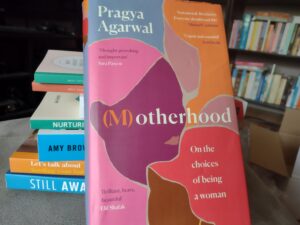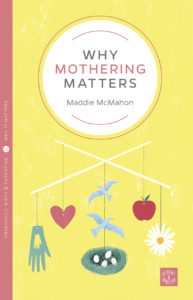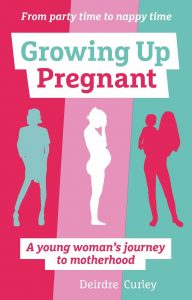I’m reading a very interesting book called The Selfish Society by Sue Gerhardt; and while I really like where she’s coming from, it did get me thinking about the general assumption that motherhood is mainly defined by sacrifice.
The things you’re expected to give up, on becoming a mother, include your pre-baby figure, your sleep, your ability to concentrate, your social life, your sex life, and your peace of mind.
The counter-argument to this is always but motherhood is so rewarding; see various mummy-bloggers’ cute anecdotes about hilarious nappy changes, first words, adoring gazes at 4am, and so on. While this is all very well, it does seem to relegate the mother’s enjoyment of life to a second-hand experience.
There don’t seem to be many sources that acknowledge the positive changes that motherhood brings about, specifically for the mother (and I’m not just talking about the oxytocin high of breastfeeding). Motherhood (and arguably, we could say ‘parenthood’ but I’m just writing about me today) can bring about huge personal growth. Understanding and accepting that you are such a key part of someone else’s world is a huge responsibility, and might be impossible for non-parents to grasp in its entirety; but when you take stock of the resources you didn’t know you had, the range of functioning you can manage on limited amounts of sleep, and the sheer protective strength you can find, all this adds up to quite a superhero status.
Motherhood can bring about a growth in understanding and empathy, especially in our relationships with our own mothers. We find out things we never expected to know about our own babyhood. For me a lot of things slotted into place when my mum talked to me about how she had felt, aged 21 alone with a newborn baby and a husband who – I’m assuming – was as emotionally disengaged then as he is now.
I particularly notice the contrast in empathy from other parents, compared with childless friends. Of course these are generalisations, and I have some wonderful childless friends who have been supportive and fun and great with Bernard. Those are the ones I prefer to spend time with, rather than the childless friends who assume I want a break from being a mother (how can I get a break from my own identity?), and that I am bored of talking endlessly about how wonderful my child is. Seriously, that subject can never tire for me, so forget it. Do you want to talk about your favourite subject all the time? I thought so. The people I tend to take a break with are other parents, who can share that feeling of enjoying the sense of freedom, while simultaneously missing the little ones. They don’t expect me not to be a mother.
Nor do you see, from the superficial coverage that is widely available, that all those sacrifices are rarely black-and white. Some of us like our new bodies; there’s a reason for being a curvy mama beyond mere indolence and chocolate biscuits! I have a far busier social life than I had before becoming a mother; and those shreds of my pre-baby social life that remain, are the ones I really value. And who expects their sex-life to remain static?
I don’t think motherhood in its conventional sense came very easily to me. But as far as my identity is concerned, it has made me feel better-defined, more purposeful and more confident. I know this isn’t every woman’s experience of motherhood; I was and am exceptionally well-supported, and that makes a huge difference. What I’m saying is that motherhood can be these things, and perhaps on International Women’s Day we should be calling for motherhood to be valued and supported so that for women, it is these things.
Originally posted elsewhere on 8th March 2011
 In a note at the end of the book, Pragya Agarwal accurately describes this work as “somewhere between a memoir and a scientific and historical disquisition of women’s reproductive choices and infertility.” (p343) Throughout the book she wanders, with intent, between her own reflections and experiences, and a huge breadth of culture, history, and contemporary research, to explore the massive topic of motherhood and choice, and to wrestle with the impossible definition of woman, and its relationship to motherhood.
In a note at the end of the book, Pragya Agarwal accurately describes this work as “somewhere between a memoir and a scientific and historical disquisition of women’s reproductive choices and infertility.” (p343) Throughout the book she wanders, with intent, between her own reflections and experiences, and a huge breadth of culture, history, and contemporary research, to explore the massive topic of motherhood and choice, and to wrestle with the impossible definition of woman, and its relationship to motherhood.

